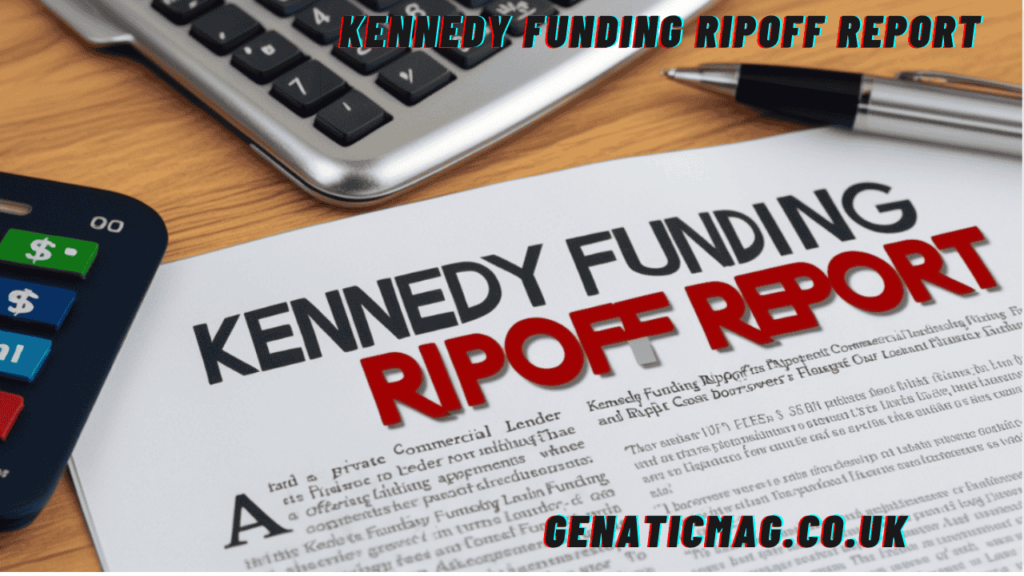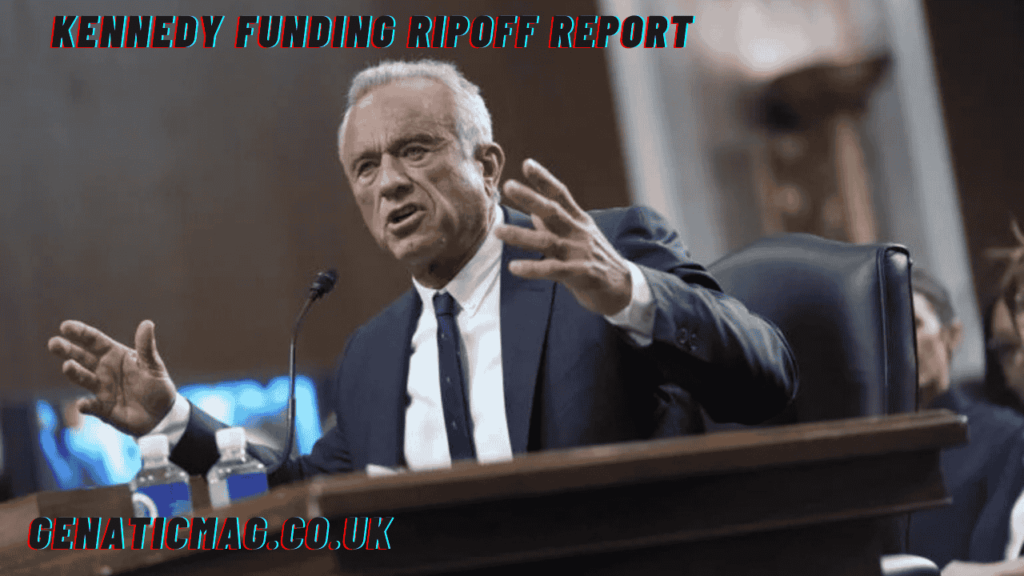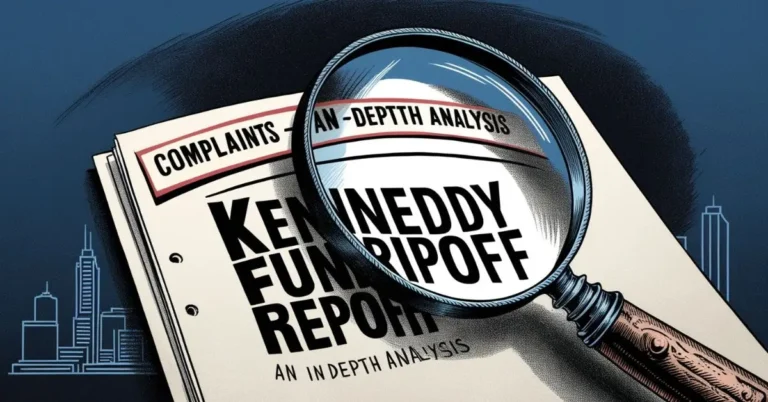In the fast-paced and often opaque world of commercial financing, problems concerning transparency and ethics can stir controversy. One such situation that’s gained notice in recent years concerns Kennedy backing — a direct private lender recognized for backing unorthodox real estate ventures abroad. However, not every attention is favorable, as demonstrated in the flood of comments centered around “Kennedy Funding Ripoff Report: What You Need to Know, ??”
In this article, we delve deep into what has caused this buzz, explore both the accusations and the counterarguments, and offer an informed perspective for investors, borrowers, and the curious public.
Who is Kennedy Funding? A Background

Kennedy Funding is a New Jersey-based direct private lender specializing in bridge loans, typically funding commercial real estate deals, raw land, and development projects — often internationally. Their appeal lies in financing deals that traditional banks shy away from, with fast approvals and high risk tolerance.
They’ve operated for decades, often marketing themselves as a “last chance” lender for borrowers unable to secure financing elsewhere. However, this niche position comes with higher interest rates and upfront fees, which is standard in the private lending space — but also what has raised eyebrows.
Why the “Ripoff Report”? Understanding the Complaints

The phrase “Kennedy Funding Ripoff Report: What You Need to Know, ??” suggests consumers and borrowers feel misled or wronged in some aspect. Let’s break down the key points that have emerged in complaints:
1. Upfront Fees with No Funding
One of the most common complaints involves borrowers being charged significant upfront fees — often labeled as due diligence or processing fees — without ultimately receiving the promised loan. While these fees are disclosed in contracts, some borrowers allege that they were led to believe funding was near certain.
Critics argue that these fees sometimes appear to be the main revenue stream, especially when loans aren’t funded. This has led to claims that the company “strings along” borrowers knowing they might not fund the deal.
2. Lack of Transparency in Terms
Another component of the Kennedy Funding Ripoff Report controversy is the lack of clarity in loan terms. Borrowers have reported discovering unfavorable clauses or unclear timelines for funding after committing to the process.
Given that these are high-risk, high-reward loans, some flexibility is expected. But when borrowers are in distress, any ambiguity can feel exploitative — especially when thousands of dollars have already been paid out in fees.
3. Aggressive Marketing Tactics
Kennedy Funding’s aggressive marketing — promising fast closings and easy approvals — has also been cited as misleading by complainants. Some borrowers feel they were given a false sense of hope only to be denied at the final stage, again after fees were paid.
Some reports accuse the company of preying on vulnerable borrowers who are desperate for financing, only to leave them worse off financially after losing fees.
What Does Kennedy Funding Say in Response?

To present a balanced look at Kennedy Funding Ripoff Report: What You Need to Know, ??, it’s essential to consider the company’s perspective.
Kennedy Funding maintains that all fees and terms are clearly disclosed in their commitment letters and contracts. They argue that many deals fall through not due to their negligence but due to issues on the borrower’s end — such as inability to clear title, insufficient documentation, or sudden changes in the project’s scope.
They also state that, as a private lender working with high-risk deals, not every loan can be funded. But the due diligence and work done to evaluate the deal still requires compensation, which is why fees are non-refundable.
Is It a Ripoff or a Risky Business Model?
The controversy around Kennedy Funding Ripoff Report: What You Need to Know, ?? may not stem from outright fraud, but rather from the nature of the lending industry they operate in.
Here are a few key perspectives:
For the Borrowers
Borrowers often come to Kennedy Funding as a last resort. If they’re turned away after paying fees, the emotional and financial toll can be significant — and it’s understandable they’d feel taken advantage of. Especially if they were under the impression that the deal was more secure than it actually was.
For Kennedy Funding
From the lender’s side, high-risk lending demands time, research, and upfront commitment. Deals fall apart for various reasons, and it may not always be the lender’s fault. They are not a charity — they are a business, and the work done must be compensated regardless of the outcome.
How to Avoid Falling Into a Lending Trap
If you’re a borrower considering working with Kennedy Funding or any similar private lender, here’s what you need to know before signing on the dotted line:
1. Read the Fine Print
Carefully review all commitment letters, term sheets, and contracts. If the document is vague or overly complex, hire a real estate attorney to explain it to you.
2. Ask for Success Rates
Don’t hesitate to ask the lender about their funding-to-application ratio. How many borrowers who pay the upfront fees actually receive funding? Any hesitation in answering this question should be a red flag.
3. Understand Your Risk
Private lending comes at a cost. Fees, high-interest rates, and tight timelines are part of the package. If your deal is already shaky, adding more risk may not be wise — no matter how appealing the pitch sounds.
Lessons from the Kennedy Funding Ripoff Report: What You Need to Know, ??
This situation highlights the importance of due diligence — not just by lenders, but by borrowers too. Anyone seeking private financing must walk in with eyes wide open, understand the risks, and not rely solely on what’s pitched in emails or marketing materials.
Here’s what we can take away:
- The line between hazardous loans and unethical actions can sometimes be fuzzy.
- Transparency and education are crucial to avoiding disappointment or financial harm.
- A “ripoff” to one borrower can be a commercial choice to the lender – context matters.
Final Thoughts on Kennedy Funding Ripoff Report: What You Need to Know, ??
The swirling discourse around Kennedy Funding Ripoff Report: What You Need to Know, ?? is emblematic of deeper issues in the alternative lending world. While some borrowers feel wronged, others report successful deals and express gratitude for a financial lifeline when no one else would help.
As with most controversial business practices, the truth likely lies somewhere in between. Kennedy Funding may not be a ripoff in the legal sense, but the emotional and financial frustration some borrowers have experienced is real.
In the end, what you need to know is this: Always proceed with caution, clarity, and legal support when engaging with any high-risk lender — especially when large upfront fees are involved.
Also Read : Exploring Fintechzoom.com: Your Go-To Source for Financial Technology Insights
